## From Gridiron Glory to Boardroom Domination: How Ohio State Shaped a National Champion’s Business Acumen
He wore scarlet and gray, led his team to victory, and hoisted the trophy high. But Mike Doss’s journey didn’t end on the football field. This national champion turned his Ohio State experience into a potent weapon in the world of business.
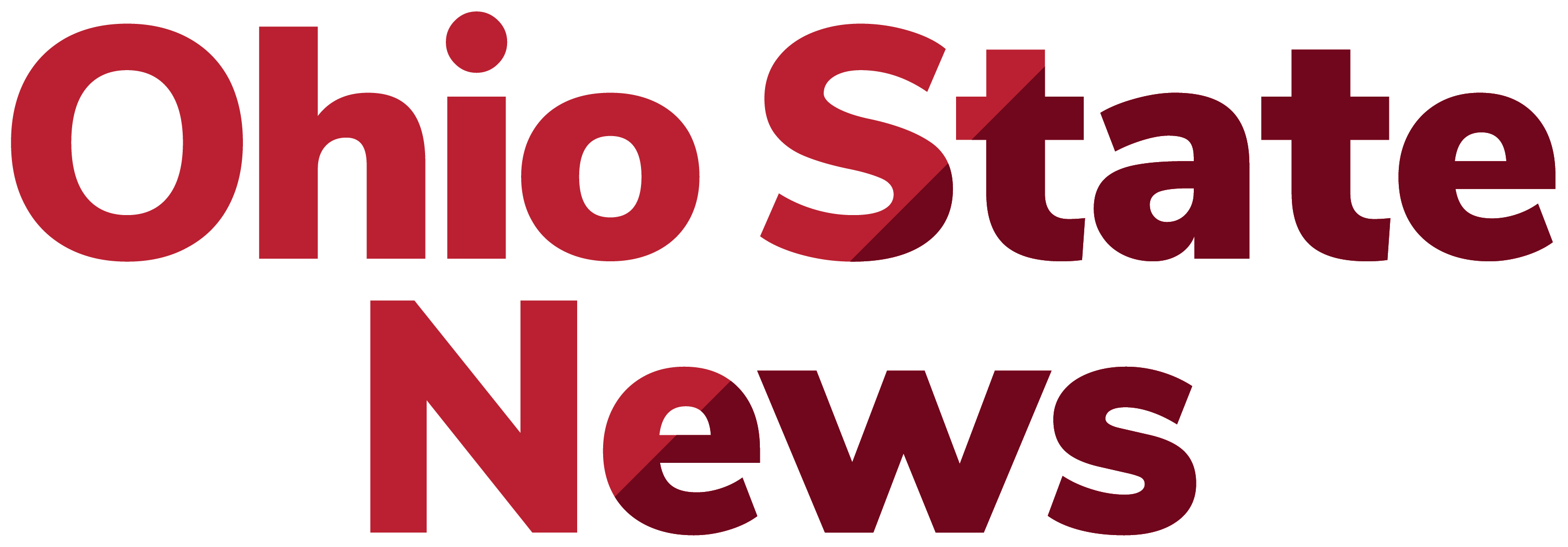
Join us as we delve into the unexpected parallels between the pressure-cooker environment of college football and the fast-paced demands of the corporate world. Discover how the lessons learned under the watchful eye of Coach Jim Tressel translated into shrewd decision-making, unwavering leadership, and an unyielding drive to succeed.
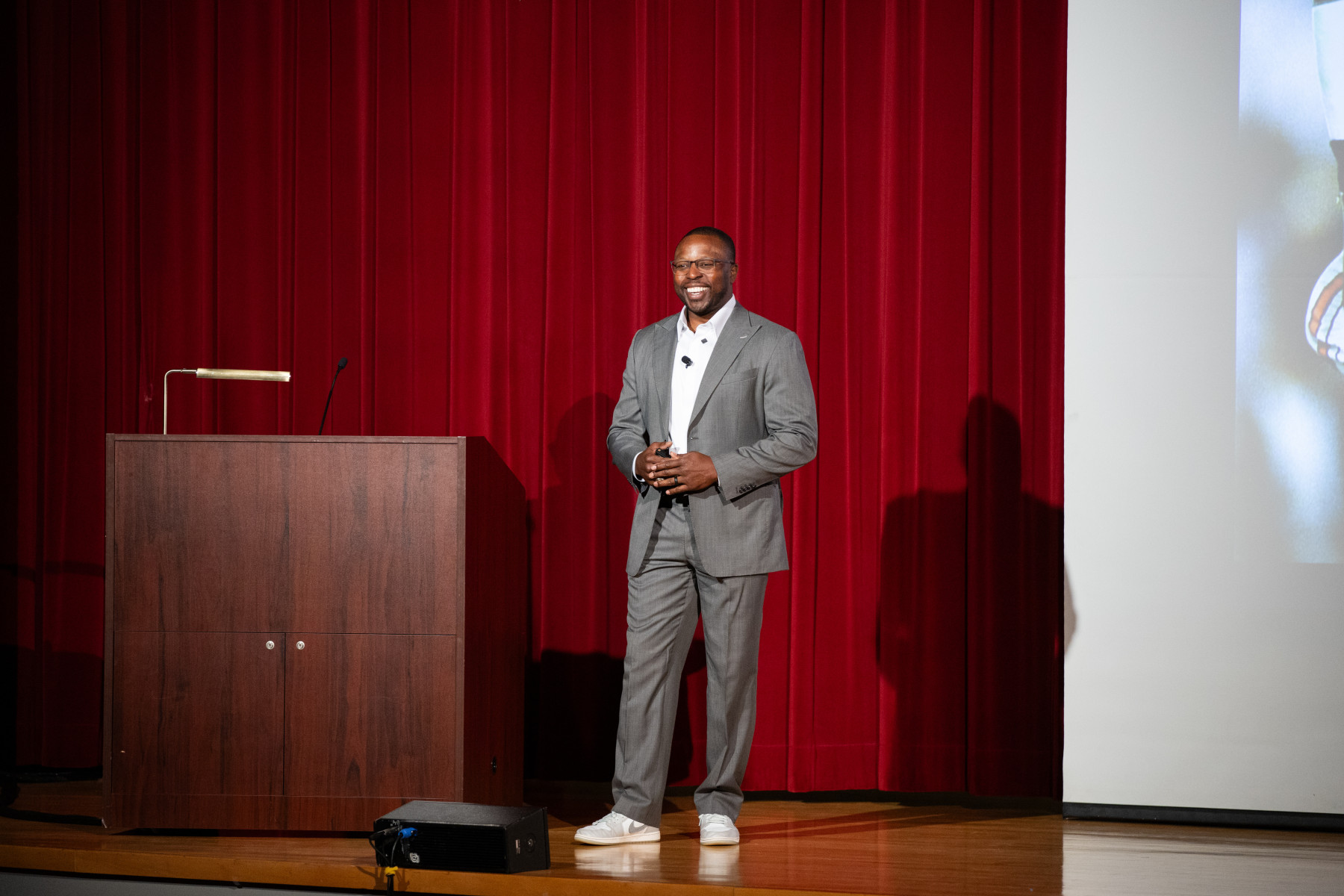
Navigating the Business Landscape
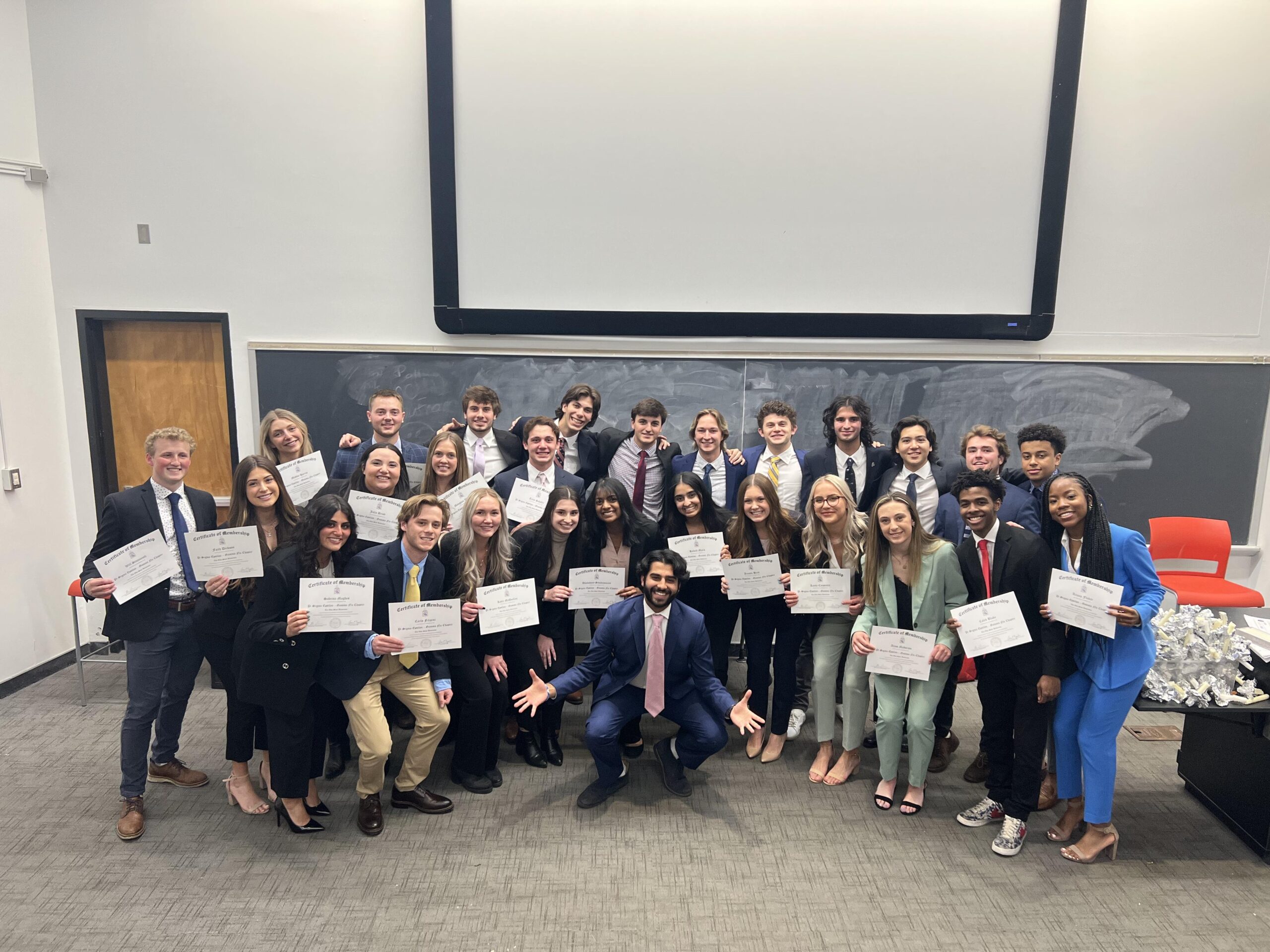
Mike Doss, a national championship-winning Buckeye football player and Ohio State alumnus, shared how he translated the leadership lessons he learned on the field to the business world. Doss was one of the keynote speakers at the Ohio State Center for Operational Excellence (COE) 2025 Summit at the Fawcett Center. The event brought together business professionals from around the nation to exchange ideas and best practices.

From Medical Sales to Real Estate: Adaptability and Pivoting Careers
After retiring from football, Doss reinvented himself and launched a successful business career, starting with medical equipment sales. “I had to start my next journey,” he said. “I had to learn medical terms, had to learn putting on scrubs, putting on masks, and actually learning procedures, … being able to adapt, the same disciplines as an athlete, taking those same disciplines every day, learning the business.”
By applying the tenacity that he developed as an athlete to the business world, Doss became a successful sales representative. “His competitive nature served him well in this industry, and he became known for his consistency in meeting or exceeding sales goals by building strong relationships with key influencers and decision-makers,” said Laurie Spadaro, director of admissions and operations for Fisher College of Business executive degree programs. “He was a top performer year after year, achieving the president’s club award several times over his tenure.”
After a decade in medical sales, Doss realized he needed to pivot again. He sought a different career that would enable him to spend more time with his wife and three children. That decision led him to return to Ohio State, earn the MBOE degree and transition to real estate sales. “At the end of the day, I love sales. I want to work with people, I want to interact with people,” he said. “I took those same experiences, those same disciplines that are about continuous improvement that I learned in MBOE, and I do it in real estate on a daily [basis]. It allows me to live my life and be able to raise my kids and be a dad.”
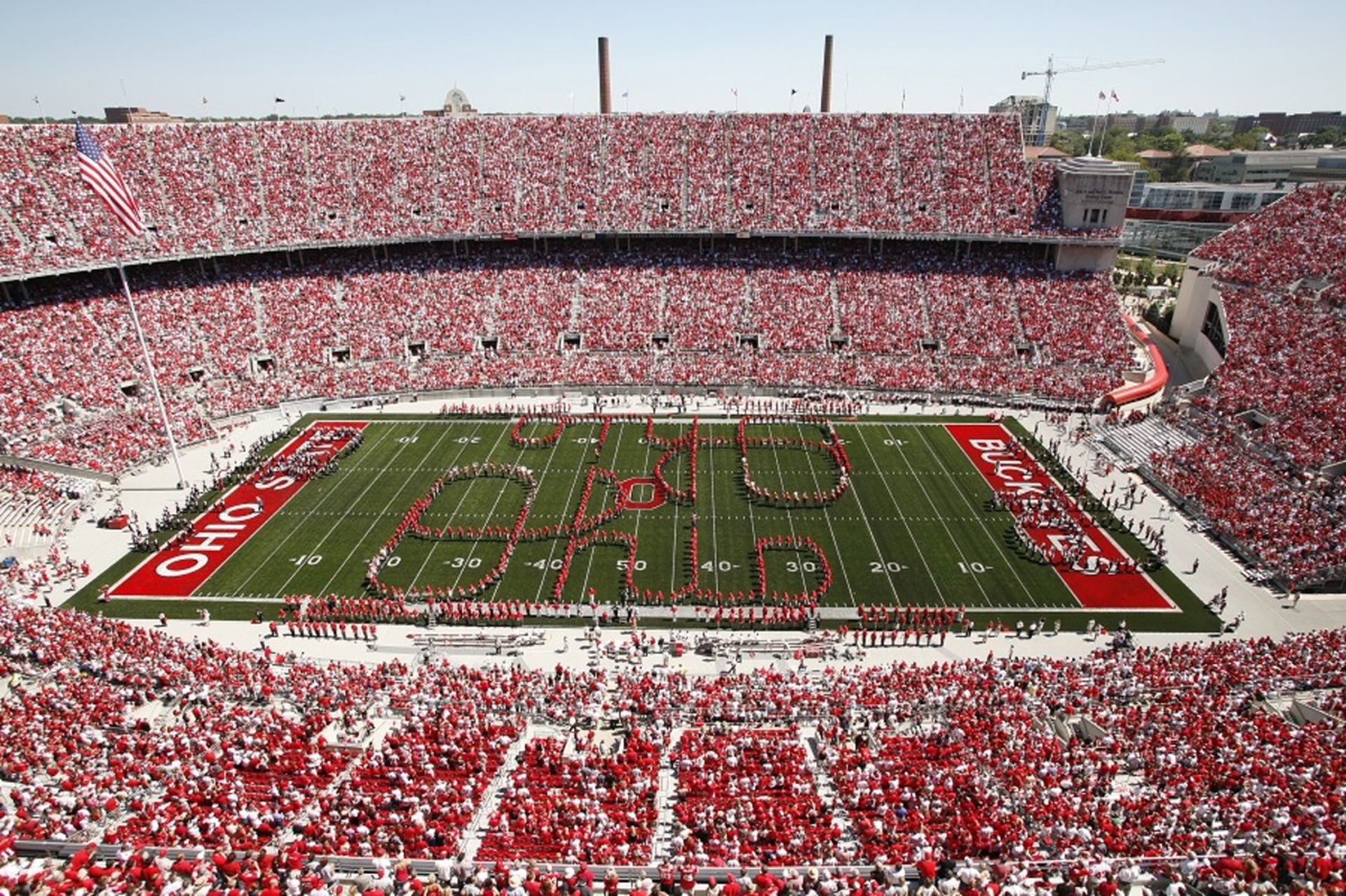
Continuous Improvement: Embracing Lifelong Learning
Doss emphasized the importance of continuous improvement in his business career. “When you stop growing, you start declining. How are you refining your tools? How are you training yourself, continuously improving yourselves in your current careers?” he said. “How are you improving your skillset?”
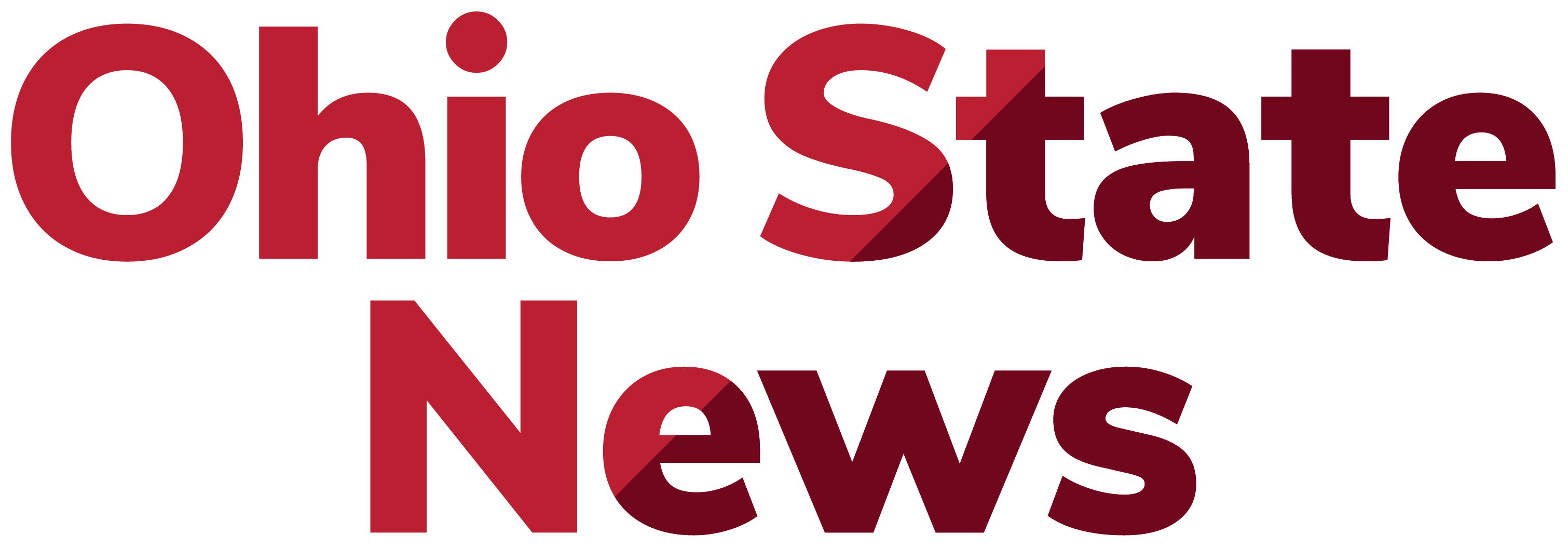
The Power of Networking: Building Connections and Expanding Opportunities
Doss highlighted the importance of networking in building connections and expanding opportunities. “I took the same disciplines that I learned in MBOE, and I do it in real estate on a daily [basis],” he said. “It allows me to live my life and be able to raise my kids and be a dad.”
At the COE 2025 Summit, attendees had the opportunity to connect with business professionals from around the nation and exchange ideas and best practices. The event featured keynote presentations by nationally recognized business advisers, including Brodie Riordan, an organizational psychologist and executive coach; management consultant Sarah Tilkens; leadership coach Leah Roe; and journalist and author Celeste Headlee.
Doss’s Insights for Aspiring Leaders
Key Takeaways from the COE 2025 Summit
At the COE 2025 Summit, Doss shared key takeaways for aspiring leaders. He emphasized the importance of continuous improvement, adaptability, and networking. “When you stop growing, you start declining. How are you refining your tools? How are you training yourself, continuously improving yourselves in your current careers?” he said.
The Importance of Personal Growth and Development
Doss stressed the importance of personal growth and development for aspiring leaders. “I took the same disciplines that I learned in MBOE, and I do it in real estate on a daily [basis],” he said. “It allows me to live my life and be able to raise my kids and be a dad.”
Championing a Culture of Continuous Improvement
Doss championed a culture of continuous improvement in his business career. “When you stop growing, you start declining. How are you refining your tools? How are you training yourself, continuously improving yourselves in your current careers?” he said.
Expert Insights
Lonnie Thompson, Professor in Earth Sciences at Ohio State
“This type of study is extremely important because we’re looking at both the shortcomings in the data and the models,” said Lonnie Thompson, co-author of the study and a professor in earth sciences at Ohio State. “The natural world is very complex, so when you try to capture this and put it into a model, that’s a big job.”
Thompson emphasized the importance of understanding the complexities of the natural world and the limitations of climate models. “If technology cannot capture these very subtle natural variabilities, then it raises big questions about what its output says for climate predictions,” he said.
Real-World Applications and Examples
The Importance of Continuous Improvement in Business
Doss emphasized the importance of continuous improvement in business. “When you stop growing, you start declining. How are you refining your tools? How are you training yourself, continuously improving yourselves in your current careers?” he said.
Real-world examples of continuous improvement in business include companies that invest in employee training and development, companies that implement quality control measures, and companies that encourage innovation and experimentation.
Conclusion
Doss’s insights and experiences offer valuable lessons for aspiring leaders and business professionals. By embracing lifelong learning, adapting to change, and building connections, individuals can achieve success and fulfillment in their careers.
The COE 2025 Summit provided a platform for business professionals to exchange ideas and best practices, and attendees had the opportunity to connect with nationally recognized business advisers and learn from their experiences.
Conclusion
So, there you have it. Mike Doss, Ohio State champion and now a successful businessman, reminds us that the lessons learned on the gridiron transcend the field. From the discipline and resilience fostered by Coach Tressel’s demanding training to the unwavering team spirit that propelled the Buckeyes to victory, Doss credits his Ohio State experience as the bedrock of his professional success. His story underscores the invaluable transferable skills gained through athletic pursuits, highlighting the importance of hard work, perseverance, and collaboration in achieving greatness, both on the field and in the boardroom.
Doss’s journey serves as a powerful testament to the enduring impact of a university like Ohio State. It’s a reminder that the pursuit of excellence in athletics isn’t just about trophies and accolades; it’s about forging character, building resilience, and developing the leadership qualities that empower individuals to thrive in any field they choose. As we watch future generations of Buckeyes compete, let’s remember that the true victories often lie beyond the scoreboard, in the lives they build and the legacies they leave behind.
The next time you see a young athlete pouring their heart into practice, remember Mike Doss. Remember that the lessons they learn today, the grit they develop tomorrow, could very well shape the leaders and innovators of our future.